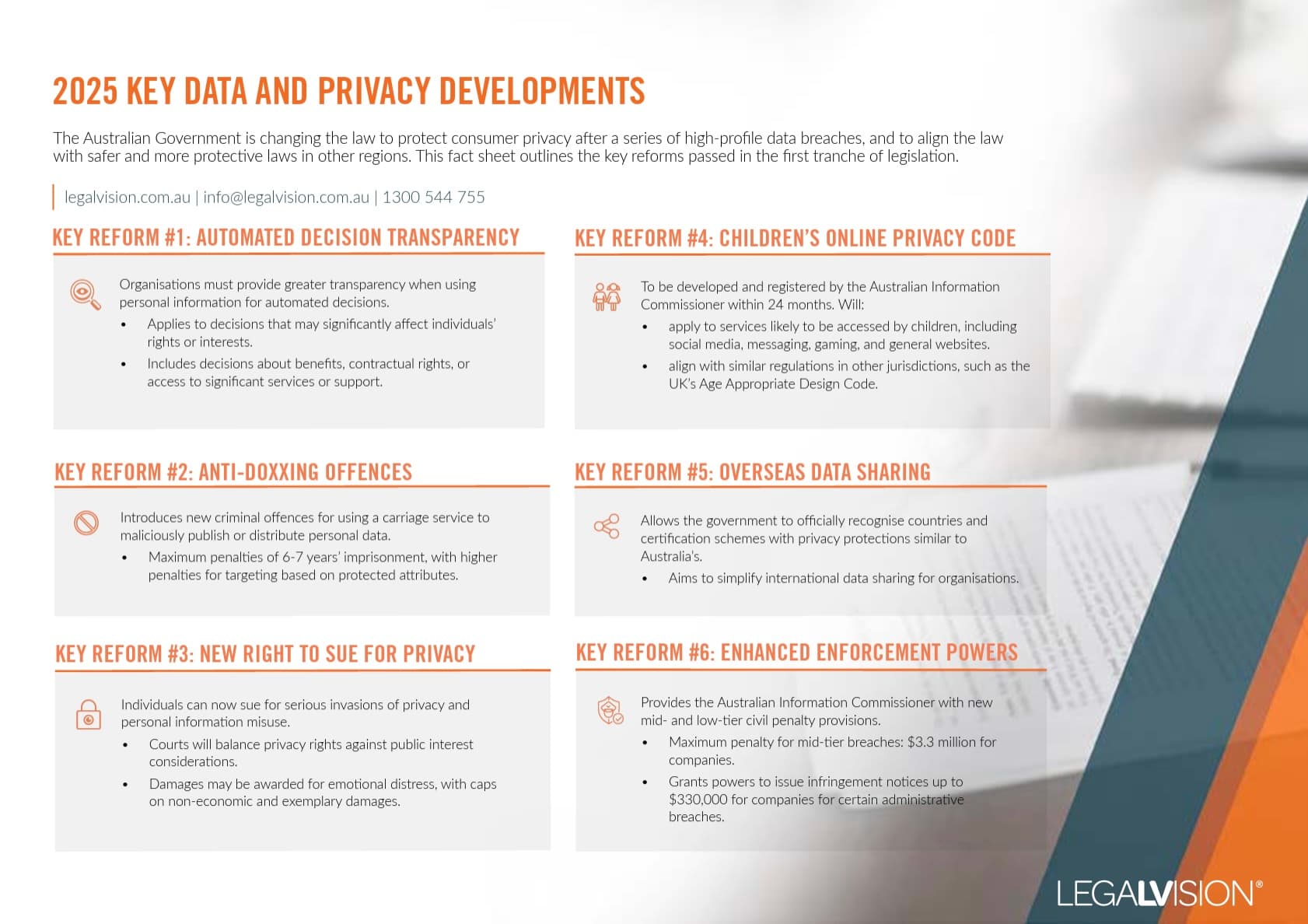Understanding data protection and privacy laws is crucial for business owners in aged care. Knowing these rules and safeguarding personal information benefits you, as it builds trust with clients and regulators. In particular, the law governs how information is used and requires you to notify data breaches. This article delves into data protection and privacy laws for you as an aged care provider and also addresses key issues.
What Does Data Privacy Cover?
Data privacy involves protecting individuals from unwarranted intrusions on their autonomy. For you, as an aged care provider, privacy is crucial due to the sensitive nature of the information you possess about your clients.
Services like nursing homes and in-home care collect data, such as:
- clients’ addresses;
- living arrangements;
- health and financial statuses; and
- vulnerabilities.
Sharing this information without consent could lead to legal consequences, as you are obligated to safeguard personal data.
In the Privacy Act 1988 (Cth), “personal information” refers to data or opinions about an identifiable or reasonably identifiable individual. This includes “sensitive information“, such as details about an individual’s health or ethnicity.
What Are Your Responsibilities?
The Charter of Aged Care Rights acknowledges that care recipients have the right to safeguard their information. As an approved aged care provider, you are responsible for taking reasonable steps to protect your client’s personal information. Being careless with this information could undermine a client’s dignity.
In general, the Aged Care Act recognises three critical obligations:
- use personal information solely for providing aged care or other designated purposes;
- do not disclose personal information without written consent, except when necessary for providing aged care. For instance, if you’re required by a government funding agreement to report incidents, you can share information to meet that requirement; and
- safeguard personal information with reasonable security measures to prevent loss or misuse.
The Australian Privacy Principles (APPs) in the Privacy Act are also incorporated, with modifications, in the aged care sector. For instance:
- collect personal information reasonably necessary for your activities and using lawful methods (APP 3); and
- ensure personal information is up-to-date (APP 10) and allow individuals to correct their personal information (APP 13).
Tips to Reduce Legal Risk
To lower your risk of breaching data protection laws, you can take practical steps. These steps are not necessarily costly to put into practice.
The first step is simple: always get consent before collecting or using personal information. When it comes to sensitive data, individuals should expressly and clearly give consent. To reduce risk, it is important that:
- people are well-informed before giving consent;
- consent is given willingly; and
- individuals have the ability to understand and communicate their consent.
Moreover, the consent you receive should be current and specific, not outdated and unclear. For instance, if there’s an ongoing agreement for using personal data, make sure to renew it at reasonable intervals.
Another crucial step is to conduct regular staff training on data protection and privacy responsibilities. This training will help your team apply these practices in their daily work. For best results, consider using videos, modules, and quizzes to reinforce their understanding.
Thirdly, it is essential to have a privacy management and data breach response plan in place. Developing such a plan is often most effective when done with the guidance of a legal professional.

This factsheet outlines the Australian Government’s strengthened consumer privacy laws in 2025 following major data breaches and their alignment with global standards.
Breach Consequences
When you breach data protection and privacy obligations, it can have significant consequences, both for individuals and entities. Apart from legal consequences, the adverse impact can lead to a substantial loss of income.
If you breach privacy laws, a court could make you pay civil penalties. The Australian Information Commissioner has the authority to request the Federal Court or Federal Circuit Court to order your company to pay fines to the Australian Government if you are found guilty of breaking penalty provisions. The penalties for serious or repeated privacy breaches are substantial and could amount to millions of dollars, depending on the situation.
Key Takeaways
In an aged care setting, compliance with data protection laws is essential to maintain trust. An ethical approach involves ensuring that you use personal information for the purpose for which you collect it and that information is adequately secured. You should train your staff to respect privacy in their everyday activities. Remember, data integrity is a commitment to the well-being of those you serve.
If you have any questions about data protection and privacy laws, our experienced privacy lawyers can assist as part of our LegalVision membership. For a low monthly fee, you will have unlimited access to lawyers to answer your questions and draft and review your documents. Call us today on 1300 544 755 or visit our membership page.
We appreciate your feedback – your submission has been successfully received.











